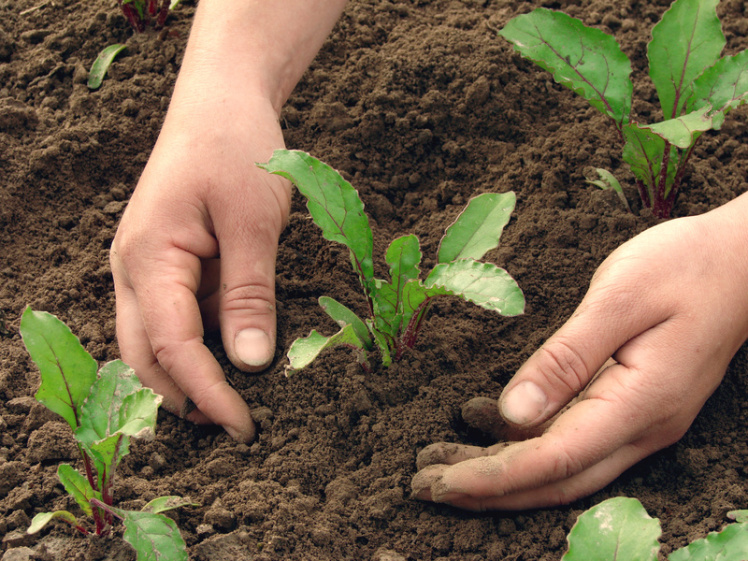-
About
- Our Work
- Get Involved
- Stay Updated
Plant wisely!

This blogpost by Rustam Ibragimov originally appeared on the GFAR blog.
I will tell you something that is not new to any of us. Today, nearly 1 billion people across the world face the problem of undernourishment. Agricultural development organizations do their best to tackle this ‘number one’ issue which is a problem of the whole generation nowadays and the generations to come.
I have reviewed a lot of strategies, approaches, and techniques of how to ensure better agricultural development that provides nutrition security for all. However, only a small number of them caught my attention.
Failure to fight against plant pests can have a negative impact on global food production by significantly reducing the crop yields worldwide. Namely, pests can integrate into huge areas of pastureland, infest crops and eventually harm the plants. This makes a direct and devastating impact on food production and has an extremely negative influences on farmers. Fighting against these pests, in my personal opinion, is highly crucial in ensuring food security for a better future.
One of the most creative, impressive and at the same time effective approaches for specifically combating plant pests is the “Plantwise” programme introduced by the Center for Agriculture and Biosciences International (CABI). I learned about Plantwise when I attended the GCARD3 Global Event as a GFAR-sponsored social reporter and organized an interview with officers at CABI to get their take on the programme and its roll-out in my region, Central Asia and Caucasus. Watch it here.
I will avoid presenting the statistics, quantitative data and achievements of this programme which you can find on the website; I will just share my impression of what is so special about this programme for me personally.
The first thing which impressed me considerably is the component called ‘plant clinics’, an important part of Plantwise. This is a unique facility where smallholder farmers can approach the trained plant doctors who in turn give diagnoses and useful advice on how to treat the crop/plant wisely and most efficiently.
Such treatment can be compared to treating a real person with his/her own health issues where doctors prescribe remedies. I was truly amazed with such an attitude towards a single plant: the programme emphasizes that the plant is a living creature of the farmer, like his/her growing child, a family member. That is what makes it so special, distinctive.
Furthermore, I am convinced that this way of working highlights the necessity of encouraging collaborative work to fight pests together with all the necessary stakeholder groups. This involves the national partners aligning with the international ones in order to establish an efficient plant health system where each one of us can significantly contribute. A particularly good example here might be the data and information exchange mechanism. In other words, the development of the plant health system encourages many different people on a national level (extensionists, researchers, educators, policy makers, farmer organizations, etc.) to come together to deliver the knowledge to farmers. This is truly important nowadays when farmers require professional advisory services and need expert approaches coming from the outside. By doing this, we will receive a generation of professionally educated farmers who are able and willing to contribute efficiently towards sustainable agricultural development across the world.
According to the statistics, the end beneficiaries of the current process, mainly smallholder farmers, have been influenced positively by the Plantwise programme, implemented in various regions of the world. So far, the programme has established 1,800 clinics in 34 countries; 4,500,000 farmers have been reached and 5,000 doctors have been trained to provide advice to farmers. This, undoubtedly, makes the programme so successful, that individual farmers have been receiving quality treatment for their ‘family member’.
I am a bit disappointed at how the majority of people distant from agriculture have a wrong concept about the contribution made by farmers who produce our food. Thanks to farmers, people can have their meals on the table every single day. But farmers require support and a respectful attitude towards their ‘family members’. Let’s not forget that if you ate today…. Thank a farmer…. Respect a farmer…. Save a farmer!
Watch this interview with Dr. Travor Nicholls, Chief Executive Officer CABI and Dr. Dennis Rangi, Director General CABI, who share their vision on developing and strengthening bioscience in Central Asia and Caucasus region (CAC) on a national level, highlighting the implementation plan of the Plantwise programme together with CACAARI, which will act as responsible unit for the region in implementing the programme.
Photo Credit: OpenDoor FlatheadTags:About the author
Author's recent posts
More posts from authorRelated Posts
Comments
No comments made yet. Be the first to submit a commentBy accepting you will be accessing a service provided by a third-party external to https://www.ypard.net/
Get in touch
Email: [email protected]
YPARD Global Coordination UnitHosted by AGRIDEA and the Czech University of Life Sciences Prague
Lausanne, Switzerland and Prague, Czech Republic - Our Work


